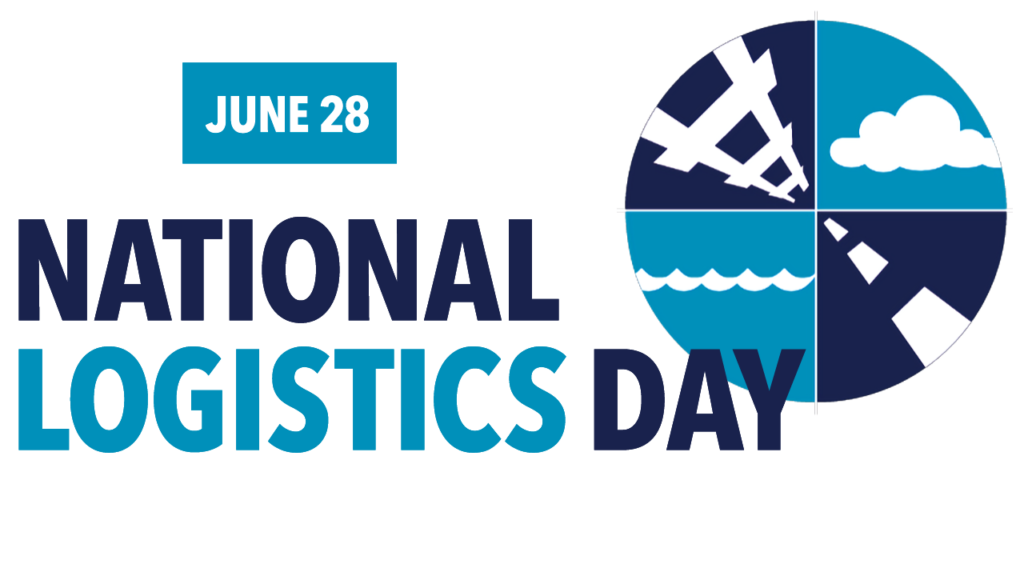Take a look around. Regardless of the location in which you are reading this article, you’re probably surrounded by items that originated from outside your local area. Most of us don’t pay much attention to how the items we use and enjoy make their way into our lives. The staff at the Transportation Intermediaries Association (TIA) note, however, that the logistics industry plays an “out-sized — and often underappreciated — role … within the greater transportation ecosystem.”[1] The TIA staff observes that from the very beginning of trade between villages, people have needed their goods to be moved, stored, and delivered. According to the staff at National Day Calendar, the first real awareness of the extent and value of trade arrived when the adventures of Marco Polo were published. They write, “The logistics industry first started to take form when Marco Polo traveled to China on the Silk Road. His detailed written record paved the way for future traders and merchants traveling between Europe and China. In 1896, the invention of the ‘horseless carriage’ semi-truck improved how goods moved across our country. Just 14 years later, the first air cargo flight took place in 1910. The flight between Dayton and Columbus dramatically increased the speed with which goods could be delivered in the U.S. By 1956, the first container ship sailed from the port of New Jersey to Texas. Shipments forever changed how goods moved around the world. These advancements demonstrate how logistics connect the world — and always have.”[2]
To recognize the dedicated professionals involved in the logistics industry, 28 June has been designated annually as National Logistics Day. The staff at Holiday Calendar reports, “This special day was established to recognize and honor the contributions of logistics professionals. It has been around since 2005 and is celebrated every year as a way to thank those who work hard behind the scenes, ensuring that goods are delivered quickly, efficiently and safely.”[3] In 2019, Logistics Plus Inc., decided to formally register the day with National Day Calendar as “a new annual day to recognize and appreciate the importance of the logistics industry in both our national and global economies.”[4] In the press release announcing the 2019 event, Scott G. Frederick, Chief Marketing Officer at Logistics Plus, noted, “Logistics accounts for nearly 8% of everything we make and sell in the United States. That includes packaging, warehousing, shipping, and more. More than 50 million people are employed worldwide in the field of logistics! The third-party logistics (3PL) industry — those that help businesses efficiently manage logistics across their supply chains (from 3PLs to truckers to warehouse managers) — represents an $800 billion industry on its own.”
You don’t have to convince supply chain professionals of the importance of logistics. They know logistics affect all of our daily lives both professionally and personally. They also understand that the global economy would come to a screeching halt without logistics. Nevertheless, the staff at Holiday Calendar offers three reasons logistics should be celebrated:
1. Logistics helps to ensure effective, efficient and timely delivery of goods. “Without logistics, it would be very difficult for businesses to transport products to their customers in a timely manner. A well-planned logistics system ensures that goods can be delivered safely and reliably, on time and with minimal cost — preventing any major delays or missed deadlines.”
2. Logistics can help reduce costs. “Logistics can help businesses save money by providing them with the tools to optimize their supply chains. By having more efficient delivery routes, warehouses, and inventory systems in place, companies can reduce their operational costs while still delivering great customer service.”
3. Logistics helps to create value. “By leveraging supply chain technology and data analytics, businesses are able to identify areas of improvement and create added value — resulting in higher profits. Logistics also creates jobs in the transportation industry, helping to stimulate economic growth.” Artificial intelligence solutions, like the Enterra Supply Chain Optimization System™, are playing an increasingly larger role in helping to ensure value is created throughout supply chain operations.
In celebration of this year’s National Logistics Day, Logistics Plus notes, “Transportation- and logistics-related industries employ over 13.3 million people in the U.S. alone — that’s over 9% of all workers!”[5] Mike Mortson, CEO of Supply Chain Game Changer, explains that those workers carry out a myriad of jobs. He writes, “If you are a part of a very large, multinational corporation, there is great likelihood that there is a logistics department, a distribution center, a freight management function, a warehouse team, an inventory management organization, and a planning team. The business in that situation is so large that activities are broken down into smaller, more focused functions to cover each of the responsibilities associated with logistics and with distribution. Titles and organization structure are also likely to reinforce these distinctions. But if you are a part of a small company, by comparison, then you know that most people are doing many different tasks and doing whatever is required to get the job done. They are ‘jacks-of-all-trades’. One minute they could be calling suppliers, the next minute they are arranging for carriers to pick up goods, then they are doing some planning, releasing orders, counting inventory and negotiating with suppliers.”[6]
Regardless of the role you fill, if you are a logistics professional, you can take pride in knowing that you are carrying on a legacy that can be traced back to the earliest recorded history. Of course, back then they didn’t call it logistics or supply chain management — it was viewed as bartering or trade. The staff at Square reports, “Mesopotamia tribes were likely the starting point of the bartering system back in 6000 BC. Phoenicians saw the process, and they adopted it in their society. These ancient people utilized the bartering system to get the food, weapons, and spices they needed.”[7] Even back then, food, spices, salt, and other goods had to be sourced and moved. Today, logistics plays an even more important role in peoples’ lives. Keep up the good work.
Footnotes
[1] Staff, “National Logistics Day,” Transportation Intermediaries Association.
[2] Staff, “National Logistics Day – June 28,” National Day Calendar.
[3] Staff, “National Logistics Day,” Holiday Calendar.
[4] Scott G. Frederick, “Today, June 28th, is NATIONAL LOGISTICS DAY!” Cision PR Newswire, 28 June 2019.
[5] Staff, “National Logistics Day 2023,” Logistics Plus.
[6] Mike Mortson, “What’s the Difference Between Logistics and Distribution?” Supply Chain Game Changer, 4 June 2021.
[7] Staff, “The History of the Trade and Barter System,” The Bottom Line, 1 January 2017.





